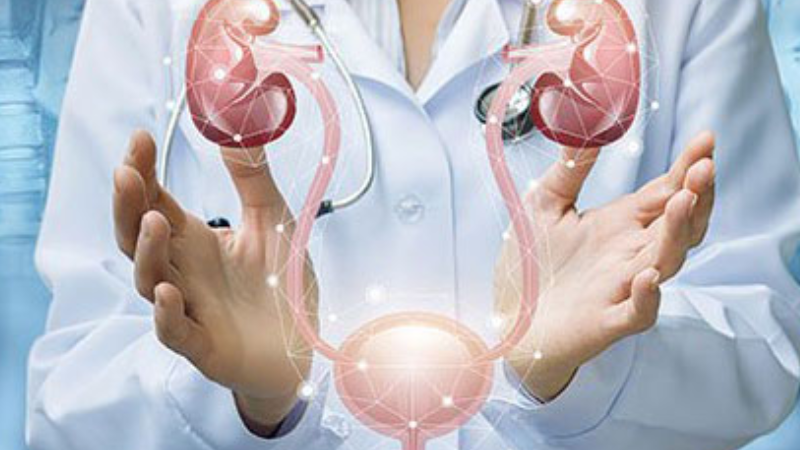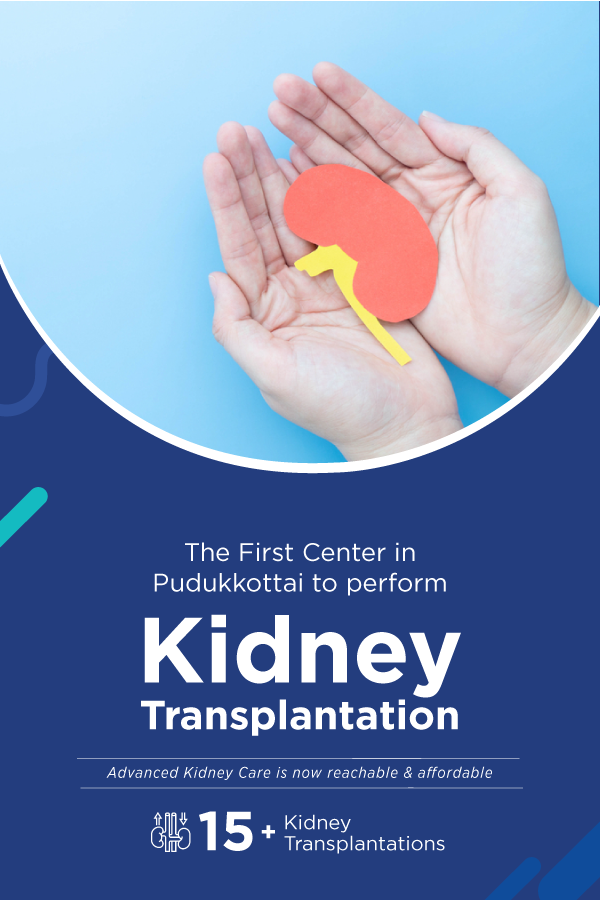Urology & Nephrology

The Best Urology & Nephrology Hospital in Pudukkottai
Department of Nephrology at MuthuMeenakshi Hospitals intends to provide state of art care in the field of Nephrology.Our hospital harbours latest infrastructure & eminent physicians who are specially trained in Renal Transplantation, and Renal Replacement Therapy and houses the best physicians and surgeons in all sub-specialities of Urology. The department offers a wide range of special services including Endourology, Laser Lithotripsy, PCNL (Percutaneous Nephrolithotomy), RIRS (Retrograde Intrarenal Surgery), TURIS (Trans Urethral Resection of Prostate in Saline), Uro-oncology, Andrology & Renal Transplant Surgery. The department also offers Routine maintenance Renal Replacement Therapy such as Hemodialysis, Continuous Ambulatory Peritoneal Dialysis (CAPD), Automated Peritoneal dialysis (APD), both in outpatient and intensive care settings.
Commonly treated diseases
Kidney Stone: These are solid masses made of crystals which form due to a reduction in the volume of urine or excess of stone-forming substances in the urine. The symptoms that kidney stone creates are back pain, burning sensation while urinating, fever, abdominal pain, and blood in urine. Smaller stones may be passed out on their own through urination. For larger stones, medication should be taken, to ease the symptoms and, if required, procedures like extracorporeal shock wave lithotripsy and percutaneous nephrolithotomy may be done.
Erectile dysfunction: It is the inability of a man to attain an erection and maintain it throughout sex. Apart from the inability to get an erection, loss of sexual desire is also a symptom. It can be treated with medication, therapies, and surgical implants.
Benign Prostatic Hyperplasia: The prostate gland increases in size due to which the flow of urine is blocked. Its symptoms are frequent urination, difficulty in urination, increased frequency of urination at night, weak or continuous stream of urine, inability to vacate the bladder, dribbling at the end of urination, bloody urination, urinary incontinence, and urinary retention. It can be treated with medication and surgical procedures.
Interstitial Cystitis: There is an increase in the urgency to urinate and the frequency of urination. Its symptoms are pressure on bladder and pain that continues worsening as the bladder fills up, pain in lower stomach, lower back, urethra, and pelvis, in women – pain in vulva and vagina, in men – pain in testicles, penis and scrotum, increased frequency of urination and pain during coitus. It can be treated by adopting healthier lifestyle, taking medication, and therapy.

A kidney transplant is done when one or both kidneys of a person have failed. It is a surgical procedure in which a healthy kidney from a donor is placed into the body of a person who has a poorly functioning kidney. The donor may be living or dead.
The kidneys are two bean-shaped organs that are positioned on each side of the spine, directly below the rib cage on either side of the spine.